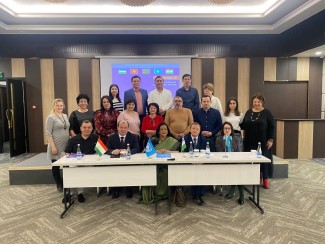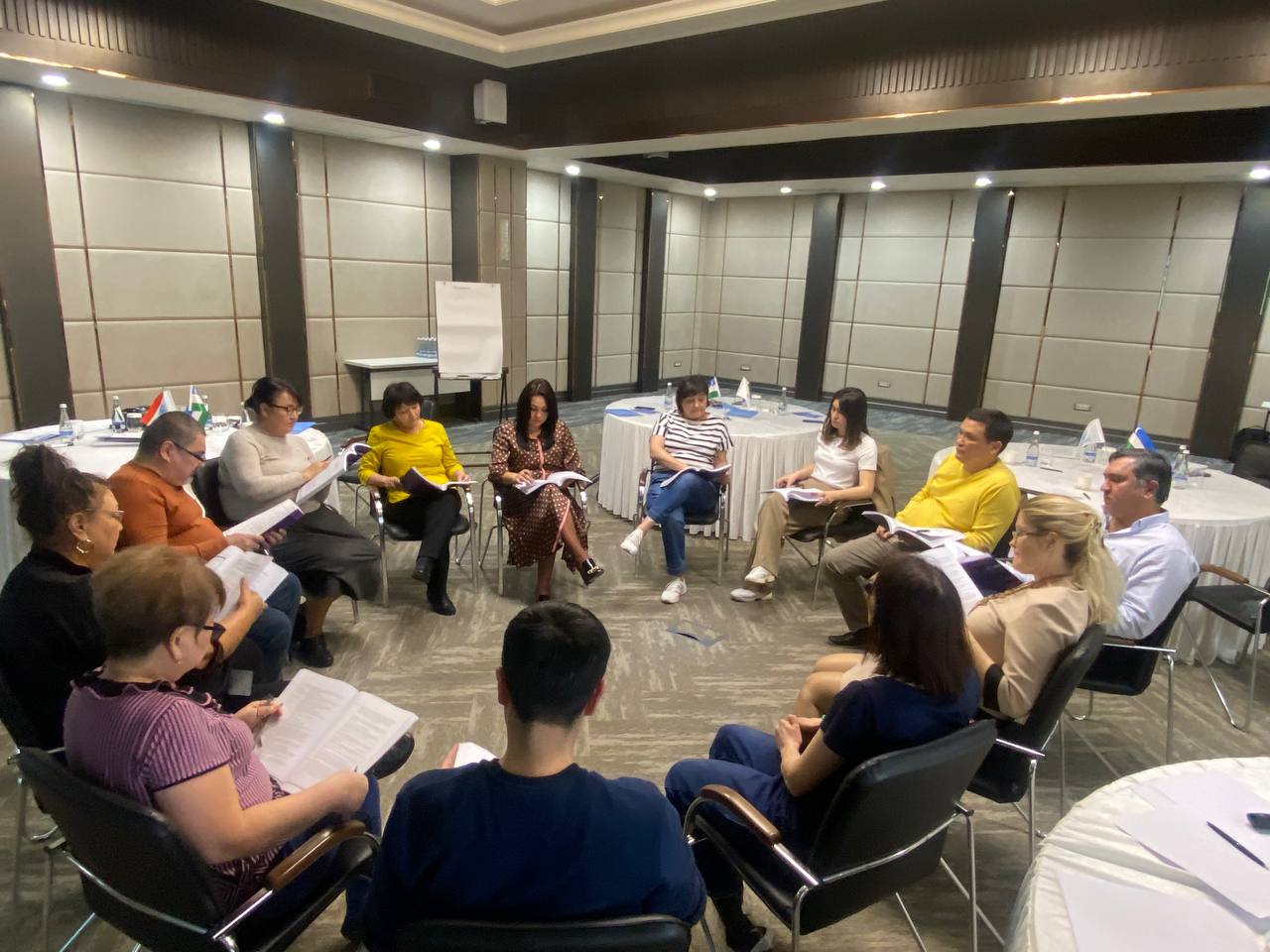UNODC Enhanced Clinical and Group Facilitation Skills of the Team of National Trainers from Central Asia

The UNODC Regional Office for Central Asia supported a training of trainers (ToT) on “Course 16 – Advanced Clinical Skills “and “Course 19 – “Enhancing Group Facilitation Skills” which took place in person in Tashkent, Uzbekistan on 20-24 February 2023. These courses are part of the Advanced Level of the Universal Treatment Curriculum for Substance Use Disorders (UTC training package).
The fifteen (15) members of the national team of trainers from Tajikistan (5) and Uzbekistan (10) attended the training, delivered by the team of UTC Regional Master Trainers. Out of 15 participants 9 were female and 6 were male.
“Health-centered, human-rights-based and gender-responsive approaches to drug use and related diseases deliver better public health outcomes. We need to enable such responses with more support, especially to developing countries, in line with the Sustainable Development Goals and the “UNODC-WHO International Standards for the Treatment of Drug use Disorders”. At UNODC, we are committed to stepping up our efforts to help people. Being the part of these efforts, this training is a logical continuation of capacity building activities which have been implemented in the region since 2010. Building on human resources trained already on evidence-based drug dependence treatment and care approaches by UNODC during the past years of implementation, the aim of this activity is to further strengthen the level of capacity for drug dependence treatment and care service delivery, monitoring and research at national level in the countries of the region. This support builds on the assumption that the national counterparts can ensure the dissemination of the training further to the level of practitioners through conducting echo trainings by national trainers on relevant UTC courses” said Ms. Ashita Mittal, UNODC Regional Representative for Central Asia during ceremonial welcome.
The first training course was aimed at providing an in-depth understanding of the major counselling approaches and specific theories, as well as an overview of the application of the specific counselling theories in substance use treatment.
The second training course provided an overview of the basic theory of group facilitations and skills on how to begin, conduct and end group work, how to work with group dynamics in treatment settings, ways to work with populations with special clinical needs, guidance for ethical conduct, proper documentation and supervision of group facilitations.

“For me, as a practicing specialist, the training was an invaluable gift. In the process of theoretical and practical sessions I found answers to many questions that I had previously. The opinions and experiences of other participants, which everyone willingly shared, were especially useful for me. Everything that I learned from this training I will apply in my work” noted Mr. Vladimir Magkoev, member of the team of national trainers from Tajikistan.
The training was conducted within the framework of UNODC global project GLOJ71 “Treating drug dependence and its health consequences: Treatnet” in collaboration with Sub-programme 3: Addressing drug problems, increasing treatment of drug use disorders and preventing HIV/AIDS” of the UNODC Programme for Central Asia for 2022-2025, the UNODC Prevention, Treatment and Rehabilitation Section, Vienna, Austria and with financial support from U.S. Department of State’s Bureau of International Narcotics and Law Enforcement Affairs (INL).